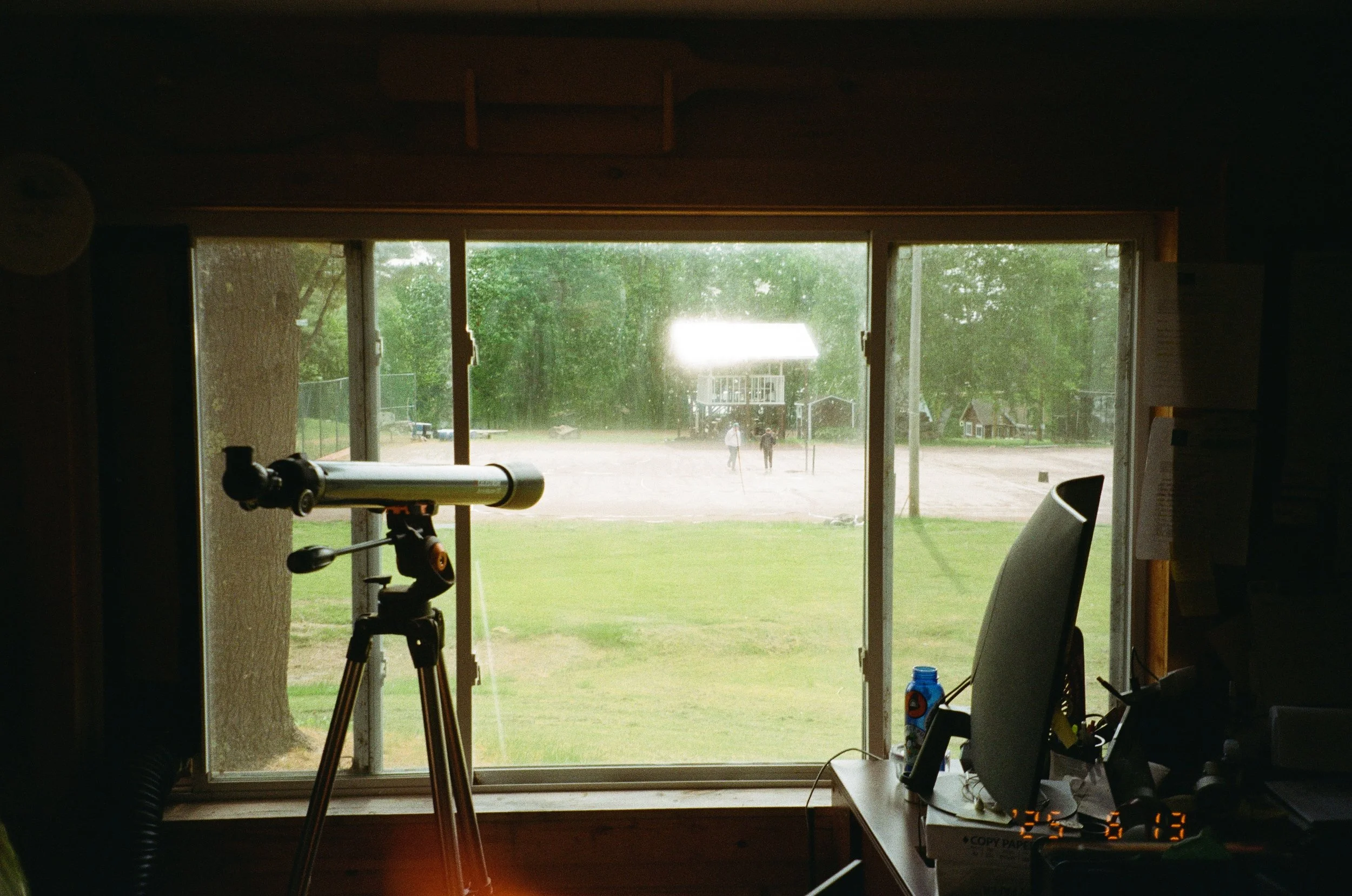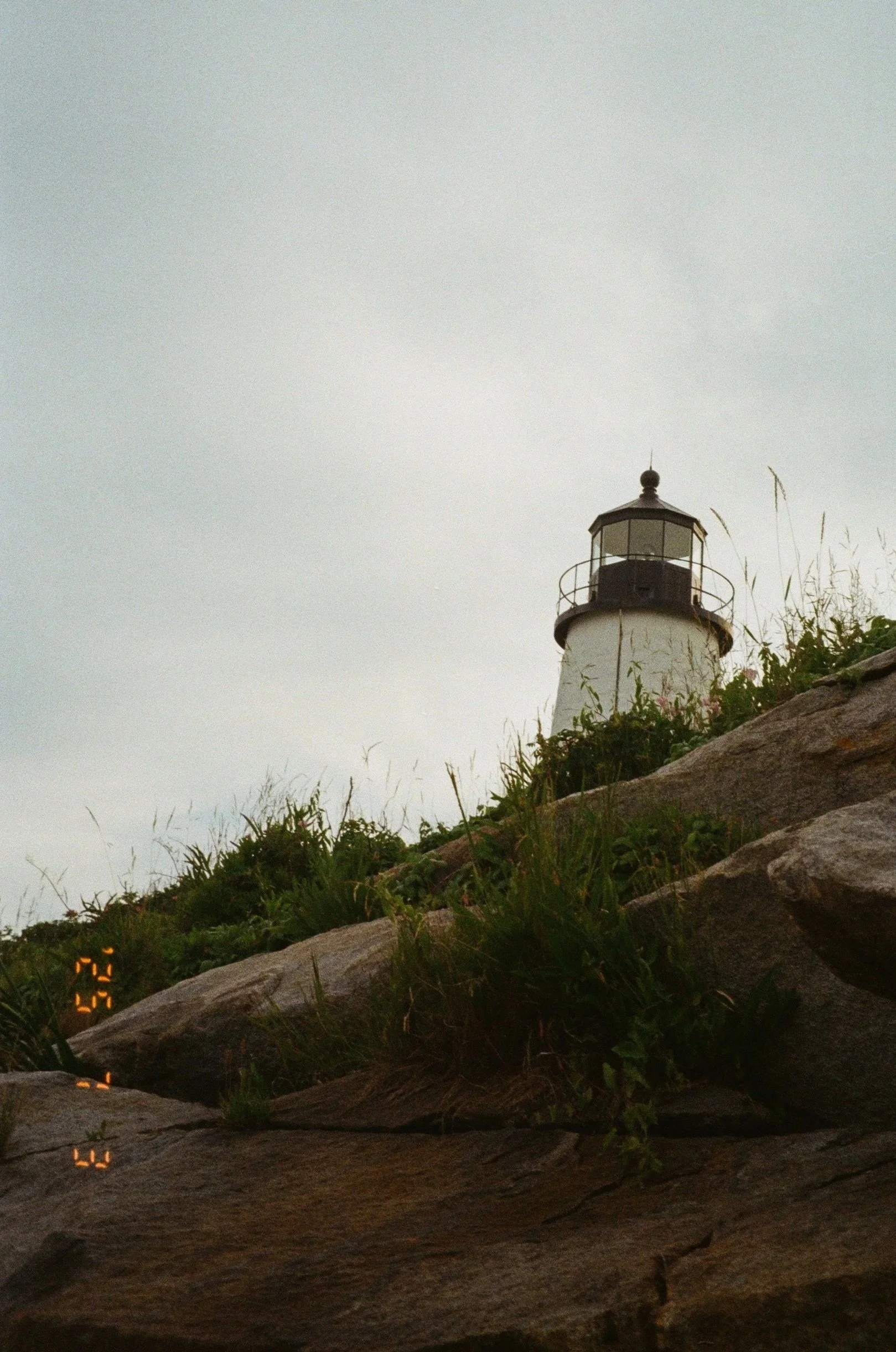Notes On a Summer Well Spent
I have been playing with the concept of what makes a good summer, and always my mind goes back to childhood. My sisters and I would wake up early, watch cartoons, and when the day got too hot we would go down to our neighbor’s house and jump off their dock. Half the time, I wasn’t actively swimming, but squatting in the shallows, doing somersaults and handstands or otherwise just letting the water move me where it wished.
When we were all swam out, we picked their raspberries from the bush and laid in the shade beneath their willow trees. A whole summer could unfold on this little island of play and sunshine between my house and the one across the street.
As I got older, this island dwindled. What is it that makes us think certain states of play can exist only for a child? As I look back at what makes a good summer, I realized it wasn’t that by growing up, I was kicked out of the club. It was that somewhere down the line, I stopped allowing those days to be so good, because I couldn’t experience them as they were. I could only experience them through comparison with the times I thought were better. I can’t play now, I’m not a child. Wouldn’t it be so great to be a child again, to play like I did?
How miserable is that?
When I came home from my junior year of college, I knew I wanted to play again. I also knew that I couldn’t spend a summer without working. I applied to outdoor jobs planting trees, delivering plants, painting houses, cleaning up highways, and finally, a summer camp.
I got a call from camp a day later, and four days after that, I was flying across the country to spend my summer in Maine.
This summer was my third year working at camp. There are two camp sessions, each lasting three and a half weeks. After my first year as a counselor, I moved to programming, where I am responsible for the daily schedules of two hundred campers and seventy counselors, as well as special programming that changes every day. I start work at 7:30 a.m. every day and am usually finished by around 7 p.m. after dinner.
After dinner, I would go watch whatever evening event is taking place. At this point in the day, the goings-on were entirely separate from me, organized by another pair of hands, one of the many pairs of hands hard at work to make the machine run smoothly. Often, I could sit on the front porch of the office, or on the hill around back, and see many activities going at once, campers eight years old playing the most competitive basketball game I’ve ever seen, or else twelve-year-old boys running quick as streaks of light, looking for a wooden hatchet hidden somewhere on the campgrounds.
This all sounds a lot like work, and I can assure you that it is. It was. The days were long and over too fast. There is never enough time, and all of camp is moving at once, a super highway of lessons, meals, rest, go, go, go. Three times a day, I eat meals with my friends and coworkers, and most days, I work through all of them. I steal small moments from friends at the football field, the climbing wall, the tennis courts, the coffee machine. A few good micro-interactions can fill up a whole day. A whole week. And on and on.
At night, we would go to the local public boat access dock, sit there and talk, complain maybe, about the day, about our lives, about time, about the lack of time. Other nights we’d go shoot pool poorly at the local dive bar, while a host of middle-aged Mainers told us what we were doing wrong. And some nights we drove to the Circle K for gas and chocolate milk and loitered in the parking lot, not quite ready to go back to camp.
Once a week, we had a scheduled day off, and those days were for exploring. I had one rule for off days, and that was that it must include a body of water for swimming, at least one incredible seafood meal, and a shady place to lie down. I did very well for myself on those days. We swam in the Atlantic and various other lakes and swimming holes down in Lake District, Maine. I ate oysters, mussels, clam chowder, and haddock tacos, all of which were too expensive and devoured regardless. Not lobster. I didn’t want to look like a tourist.
I discovered I don’t nap well, but I tried anyway.
Pemaquid Point Lighthouse
Then back to camp again. The next day, I would be back into the swing of it, moving through the swarm of campers and counselors at meals, clacking away at the keyboard in the office, running all over camp delivering rosters, equipment, and saying hi to everyone along the way. The joy of the day before commingled with the joy of the work, the tedium of the daily routine, and throughout the day, I would catch the eye of a friend and share a smile, knowing we would have only a week before we could go off exploring again in a new corner of Maine.
There is never enough time, but all of it is full, and spent well.
The inadequacy of language is such that I’m sure you, whomever is reading this, are not totally convinced. And I don’t think I can convince you, but I’ll try.
At camp, the whole world is one hundred and twelve acres and four hundred people. I know all of their names. I know every single adult’s job, and many of them are very good friends of mine. I have more than a couple couches to sleep on if I ever find myself in South Africa or the UK or Iowa, for that matter.
I know which bunk all of the kids are in and who their counselors are, their favorite sports, and how to make them laugh during the tedious task of signing up for their new schedules. I know what makes them cry and what makes them stand taller, ready for the next challenge. When you know people like that, it makes it impossible not to love them.
And maybe more than love, it’s impossible not to care. And caring, you must understand, isn’t taking responsibility for everything and everyone all the time. Caring is a lesson in paying attention. You pick out the pieces you can deal with yourself and what needs to be passed on to someone higher up and the things that are just things. Not all of them are problems.
There is a boy limping after playing basketball, and he is trying to hide it. Campers haven’t received their new schedules. The power is out in this bunk or that. At night, the loons are calling from way across the lake. The sky is clear. Cassiopeia glimmers. You see what I’m saying? The pot is out of coffee. It is ninety degrees and sixty-eight percent humidity today and there are children and adults alike wilting like the tiger lilies in their tall leaves. The wind stirs the trees. The trees are white pines. The trees are birches. The trees are aspens. The children climb the wall and the bell clangs when they get to the top. No one has ever told them they are brave before. No one has ever told them that to be brave, they must first be scared. No one has ever told them that if they are scared, they can stop. No one has ever shown them that patience is not so extreme as to be conflated with mercy. No one has told them mercy is not shameful. Come down from the wall and you can try again when you’re ready. Patience is not relenting. The bullfrogs come alive by the lake. And the barred owls. Foxes in the underbrush. The sun is rising again and the coffee is fresh and hot. My friends are chatting as they fill their mugs. There is more sugar around here somewhere. There is sweetness to go around. The loons are calling and then there is silence.
Does that clear things up for you at all?
I have been playing with the concept of what makes a good summer, and I have been trying to come up with some anecdote that would explain it all. I could tell you about the time we drove to McDonald’s and on the way back my friend suggested we listen to the wind. All the car windows rolled down at once and we drove all the way back without speaking, connected but quiet.
One day before dinner, I went down to lakeside and sat beside my old campers, and they told me how they skipped all their activities. The next day I found them skipping and walked them back to wherever they were supposed to be, and every day afterward, when I walked past them at their assigned program, they would call out “Ashley! We’re not skipping this time!”
I am good at my job. I could tell you about that. It isn’t the good-ness that matters, though. It’s the trying for the sake of the other. It;s about the caring and the noticing. It’s about the quiet connectedness, the speaking without speaking, the yelling across the field, unable to see whose calling in the dusk and knowing exactly who it is anyway. In the dining hall, across tables, eyes meeting eyes and knowing.
For the past three summers, there has been raspberry juice dripping, as there once was, swimming and sunshine, and resting in the shade. The joys of childhood are still mine, but they have changed because I have changed. There is joy in the work, too, joy that does not preclude me from freedom and play.
I am no longer a child, and there a couple hundred children I must protect and keep safe, but I am still very young and the pride I take in caring for the campers goes hand in hand with my joy, with all the simple happinesses and micro-interactions that fill up a day.
My, how I love the sun.
Thank you for reading. Let’s talk again soon, shall we?


